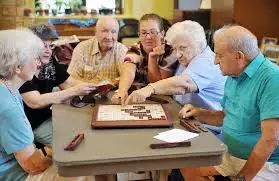- Home
- Medical news & Guidelines
- Anesthesiology
- Cardiology and CTVS
- Critical Care
- Dentistry
- Dermatology
- Diabetes and Endocrinology
- ENT
- Gastroenterology
- Medicine
- Nephrology
- Neurology
- Obstretics-Gynaecology
- Oncology
- Ophthalmology
- Orthopaedics
- Pediatrics-Neonatology
- Psychiatry
- Pulmonology
- Radiology
- Surgery
- Urology
- Laboratory Medicine
- Diet
- Nursing
- Paramedical
- Physiotherapy
- Health news
- Fact Check
- Bone Health Fact Check
- Brain Health Fact Check
- Cancer Related Fact Check
- Child Care Fact Check
- Dental and oral health fact check
- Diabetes and metabolic health fact check
- Diet and Nutrition Fact Check
- Eye and ENT Care Fact Check
- Fitness fact check
- Gut health fact check
- Heart health fact check
- Kidney health fact check
- Medical education fact check
- Men's health fact check
- Respiratory fact check
- Skin and hair care fact check
- Vaccine and Immunization fact check
- Women's health fact check
- AYUSH
- State News
- Andaman and Nicobar Islands
- Andhra Pradesh
- Arunachal Pradesh
- Assam
- Bihar
- Chandigarh
- Chattisgarh
- Dadra and Nagar Haveli
- Daman and Diu
- Delhi
- Goa
- Gujarat
- Haryana
- Himachal Pradesh
- Jammu & Kashmir
- Jharkhand
- Karnataka
- Kerala
- Ladakh
- Lakshadweep
- Madhya Pradesh
- Maharashtra
- Manipur
- Meghalaya
- Mizoram
- Nagaland
- Odisha
- Puducherry
- Punjab
- Rajasthan
- Sikkim
- Tamil Nadu
- Telangana
- Tripura
- Uttar Pradesh
- Uttrakhand
- West Bengal
- Medical Education
- Industry
Leisure activities participation tied to decline in prodromal phase of dementia

An 18 years follow-up study suggests that Participation in leisure activities declines in the prodromal phase of dementia. However, the researchers found no robust evidence for a protective association between leisure activity participation and dementia. The study details were published in the Neurology journal on October 28, 2020.
Participation in leisure activities has benefits for general health and well-being. Given the increasing numbers of people with dementia, there is considerable interest in, effective approaches for its prevention. Five of 7 studies in a recent systematic review reported that frequent participation in leisure activities is associated with the lower risk of subsequent dementia, suggesting that involvement in such activities may confer cognitive benefit. Studies with long follow-ups are needed to address bias due to reverse association, whereby the observed association may be due to the dementia prodrome, which is characterized by reduced leisure activity in the years preceding dementia diagnosis. For this purpose, researchers evaluated the association between leisure activity participation and risk of dementia in a large longitudinal study over an average 18-year follow-up.
It was a retrospective study of the Whitehall II cohort study. Researchers included 8,280 people participated in 1997–1999, 2002–2004, or 2007–2009, of whom 360 had developed dementia and 1,111 died by March 31, 2017. Researchers analyzed the comprehensive questionnaire of participants which was repeated every 5 years. Data on leisure activity participation were first collected during the 1997–1999 study wave, which therefore serves as a baseline for the current study, and repeated in the 2002–2004 and 2007–2009 waves; researchers included all Whitehall II participants who took part in at least one of these waves. The mean age at dementia diagnosis was 76.2 years, 69% of participants were male, 91% were White, and mean age at the start of follow-up (1997–1999) was 55.8 years.
Upon analysis the researchers found, participation in leisure activities at mean age 55.8 (1997-1999 assessment), with 18.0-year follow-up, was not associated with dementia (hazard ratio [HR] 0.92. However, participation in leisure activities at mean age 65.7 (2007-2009 assessment) was less likely to develop dementia (HR 0.82). They also found the decline in participation between 1997-1999 and 2007-2009 was associated with subsequent dementia risk. They didn't found any specific type of leisure activity that was consistently associated with dementia risk.
The authors concluded, "Our findings suggest that participation in leisure activities declines in the preclinical phase of dementia; there was no robust evidence for a protective association between leisure activity participation and dementia".
"Future research should investigate the socio-behavioral, cognitive, and neurobiological drivers of decline in leisure activity participation to determine potential approaches to improving social participation of those developing dementia" the authors further added.
For further information:
Medical Dialogues Bureau consists of a team of passionate medical/scientific writers, led by doctors and healthcare researchers. Our team efforts to bring you updated and timely news about the important happenings of the medical and healthcare sector. Our editorial team can be reached at editorial@medicaldialogues.in.
Dr Kamal Kant Kohli-MBBS, DTCD- a chest specialist with more than 30 years of practice and a flair for writing clinical articles, Dr Kamal Kant Kohli joined Medical Dialogues as a Chief Editor of Medical News. Besides writing articles, as an editor, he proofreads and verifies all the medical content published on Medical Dialogues including those coming from journals, studies,medical conferences,guidelines etc. Email: drkohli@medicaldialogues.in. Contact no. 011-43720751


